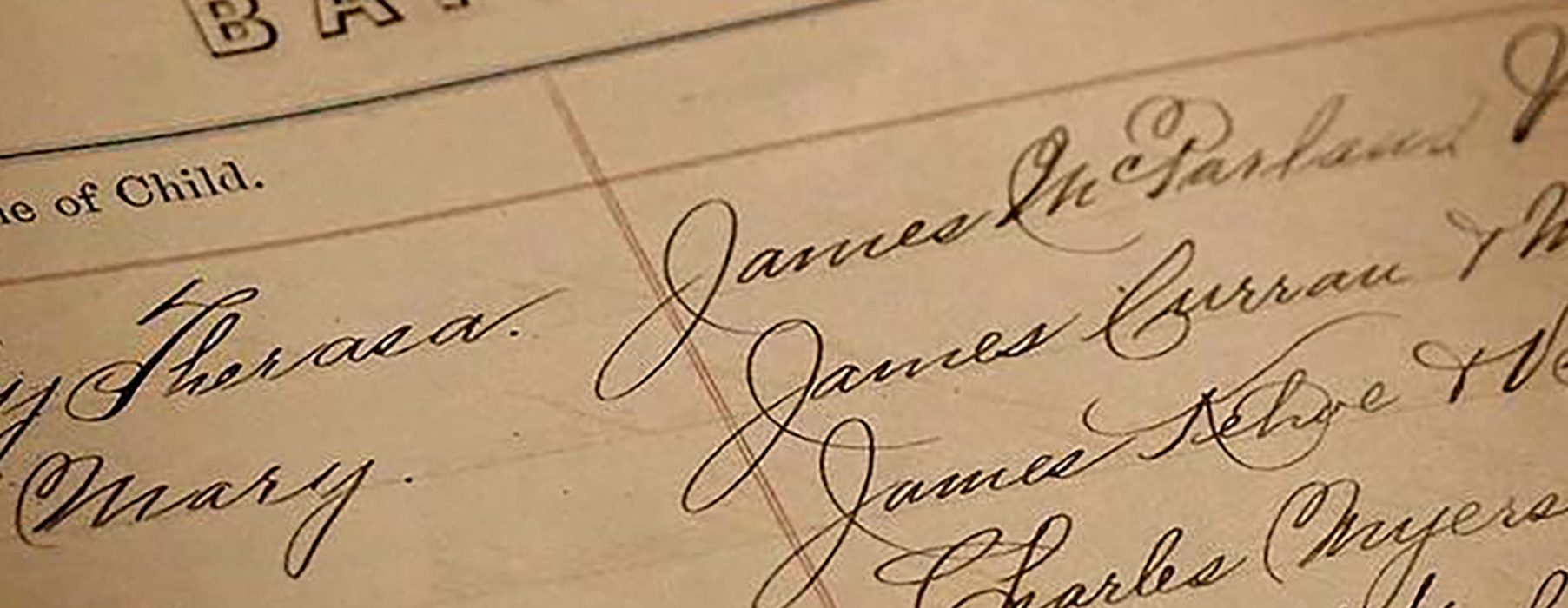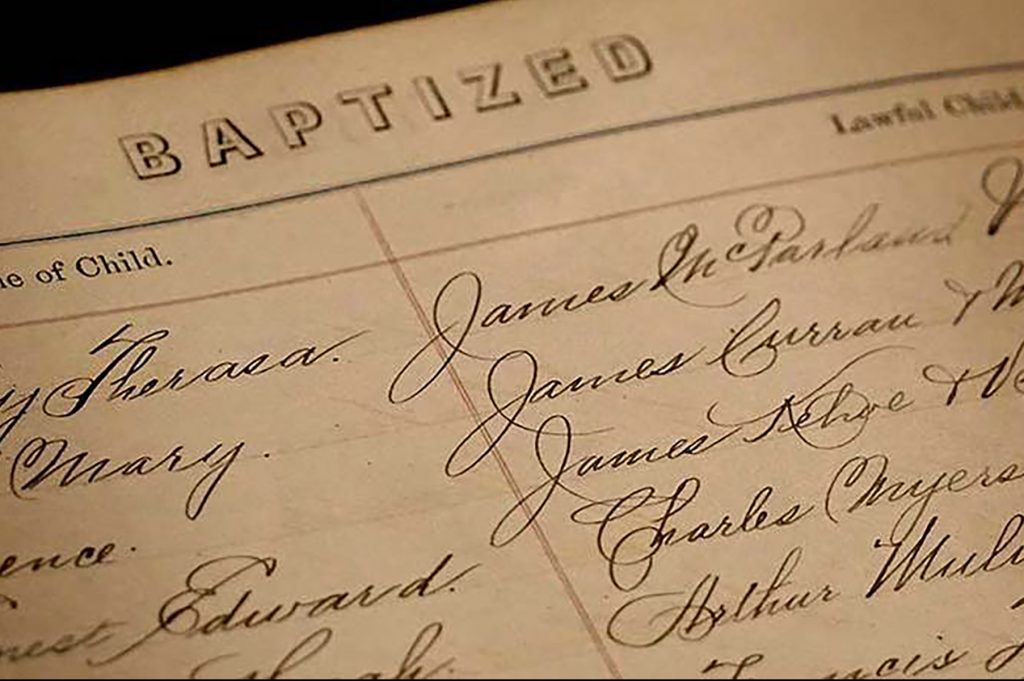April 14, 2022 // Diocese
Important sacramental records often unnoticed
According to Pope Francis, the sacraments “are Jesus Christ’s presence in us.” The Magisterium, or the teaching authority of the Church, defines what makes each sacrament valid, what words and materials to use and who can administer each sacrament. Many people do not know, however, what paperwork the Church requires after most of the sacraments.
Canon Law, the rules and guidelines for how the Catholic Church operates, requires sacramental recordkeeping. Parishes keep records of baptism, confirmation and vocational sacraments like marriage and holy orders.
According to Canon Law, “Each parish is to have parochial registers, that is, those of baptisms, marriages, deaths, and others as prescribed by the conference of bishops or the diocesan bishop. The pastor is to see to it that these registers are accurately inscribed and carefully preserved.”
Regarding baptism, Canon Law states that the “pastor of the place where the baptism is celebrated must carefully and without any delay record in the baptismal register the names of the baptized, with mention made of the minister, parents, sponsors, witnesses, if any, the place and date of the conferral of the baptism, and the date and place of birth.”
It continues to state that, in the register, “also to be noted confirmation and those things which pertain to the canonical status of the Christian faithful by reason of marriage … of adoption, of the reception of sacred orders, of perpetual profession made in a religious institute, and of change of rite.”
Initially, priests would record details regarding the sacraments that they administered in paragraph form, without a uniform formula or visual style to follow. Today, parishes record reception of sacraments in standardized charts with “fill in the blank” boxes.
Each parish begins their sacramental registry at its founding. For example, the Cathedral of the Immaculate Conception has records that date back to the 1830s, according to Diocesan Archivist Janice Cantrell.
Canon Law also requires that the diocese establish an archive in which to store papers regarding the canonical status of Catholics, among other important documents. The diocesan archives, a large office located in the basement level of the chancery in Fort Wayne, stores the sacramental records from St. Andrew and St. Hyacinth Parishes, both of which are now closed. Catholics from these two parishes dispersed to a number of different parishes, so the diocese maintains their record in a central location.
All other closed parishes, like St. Patrick Parish in Lagro, sent their records to a specified neighboring church which absorbed former parishioners.
The sacrament of baptism, the first sacrament conferred, becomes the basis for subsequent sacraments. For example, someone preparing for marriage in the Church would need records of their baptism to proceed with the matrimonial sacrament.
Cantrell said that, while the Church does not require records of first communion, some parishes may have recorded it in their registry.
Sometimes, parishes and priests did not keep accurate or complete records. If a baptismal record is lost or never filed, there is a process to “re-create” the record. Someone with a missing or unrecorded baptismal record can show photos, and witnesses of the baptism would attest that the baptism truly took place.
“What you have to do is if you can find somebody, find pictures, somebody that can produce an affidavit,” said Cantrell, “then they go and they talk to a priest and the priest fills out an affidavit that says, ‘this person was baptized on this day and this person swears this happened.’”
Catholics who have moved between parishes, or even dioceses, may wonder if they should have their sacramental records transferred to their new home. However, Cantrell says that the registry always stays at the baptismal parish regardless of a Catholic’s current home parish.
“For me, I had every single one of my sacraments at a different church. And so when I got married at the Cathedral, I had to get my baptismal certificate.” She found that her confirmation had not been recorded by her baptismal parish, so she had to send records for proper registry. “And then after I was married, the Cathedral would let my baptism church know so that they could make the notation for the marriage.”
While sacramental records remain important, many Catholics will not realize these exist until they marry, take religious vows or become ordained. Even then, realization of these records will only briefly cross a person’s mind unless a parish lost their records, had a fire that destroyed such records or never created one for that person.
For those times that these records are needed, the first place a Catholic should call is the parish in which they received the sacrament, which is tasked with safeguarding these important records.
The best news. Delivered to your inbox.
Subscribe to our mailing list today.







